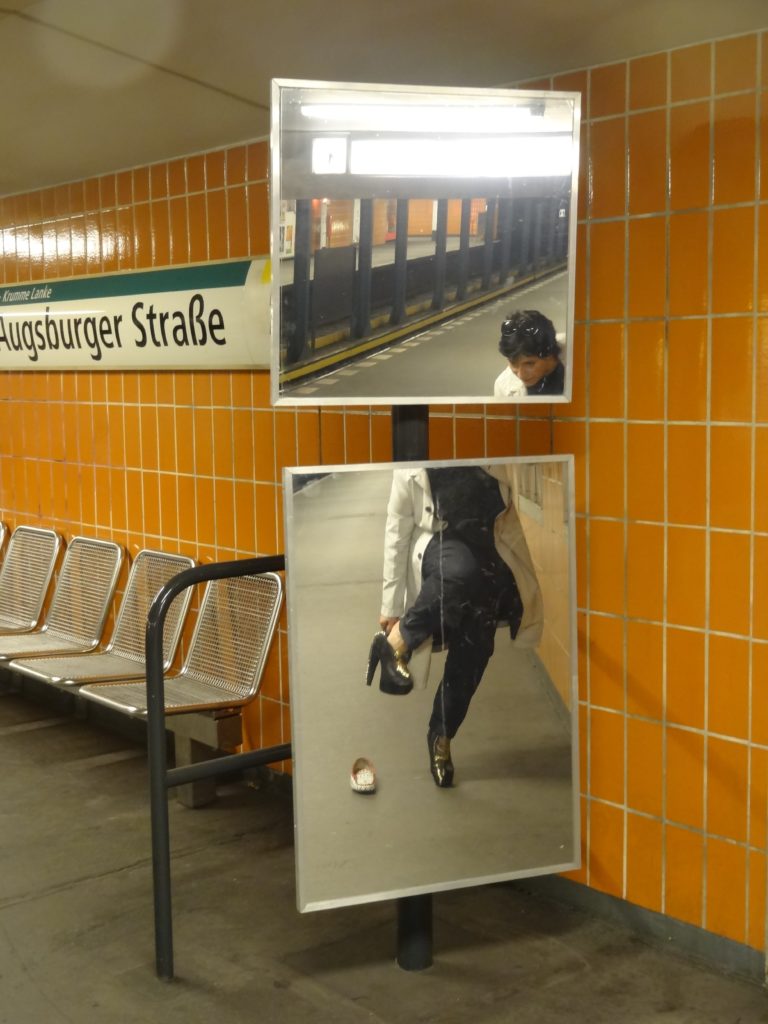Swallowed by the Machine?
Feature
Renowned vocalist and composer Lore Lixenberg discusses her new project, Nancarrow Karaoke.
‘Why sing Nancarrow?’ Is a question I am asked when describing this project.
When I first heard the player piano rolls of Conlon Nancarrow I was transfixed. Then I heard the piano transcriptions and the virtuosity of the live-ness of the performance was exciting and shocking. It was as though I was witnessing a transcendentally virtuosic human, attempting to become one with a highly complex and joyful machine, I was mesmerised and from that point I was always wondering how Nancarrow might have written for the voice.
I would sing along to Nancarrow tracks when I listened and thought that one day I might transcribe them. The idea that I would use only my voice came because occurred to me that a certain unity of sound was important to preserve the unique quality of the rolls that I felt was missing for instance, in ensemble transcriptions of the pieces. The variety of sounds in an ensemble, and the ease with which the players could play those lines, to me had a curiously flattening effect. Also when I perform the rolls ‘live’ I hope you get the mechanical assuredness and inevitability of the pre-recorded voices, with the visceral excitement of witnessing someone attempting this lines and polyrhythms live.

Also, although Nancarrow is known for his player piano music and as the ‘father of machine music’ and didn’t write at all for voice ( he in fact only wrote a handful of ensemble pieces early in his career with disatisfactory results) his music, being influenced by jazz, west African drumming and singing, boogie woogie and Bach, in spite of its complexity has a very human quality to it. Interestingly he wasn’t at all concerned with exploring electronic music that was available to him is his life, as he preferred the temporal and timbral clarity afforded to him by player piano.
‘Stelarc stretched himself with his suspensions and with his body extensions... I stretch my voice.’
In transcribing these pieces I have quantised them to fit my range. Of course I don’t have the same range as a piano, it would have been obvious and easier to sample my voice and create the track via computer, also pointless as part of this project is exploring the idea of being a post-cyborg flesh machine stretching myself to achieve these lines and rhythms just as I have to think differently when performing this music.
In performing these roles, and in fact with much of my work, I see myself more in the direction of performance artists like Stelarc and Orlan than with normal singers, and as Stelarc stretched himself with his suspensions and with his body extensions such as his robotic arm, I stretch my voice.
Learning to sing is unique in that you are sculpting your voice out of your own flesh and muscle via music, at the same time as learning the instrument and I was curious about creating a question when listening to NancarrowKaraoke, has the singer swallowed or been swallowed by this machine, the player piano? With NanacarrowKaraoke I wanted to try on Nancarrow‘s subjectivity, and in doing so maybe raise the question of what it is to be a flesh performer in the time of computers and machines.
Author: Lore Lixenberg